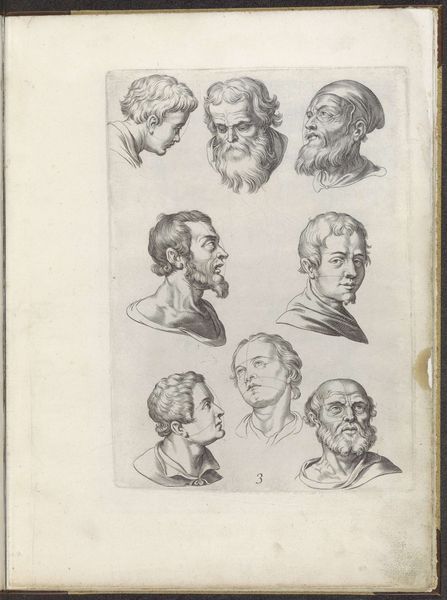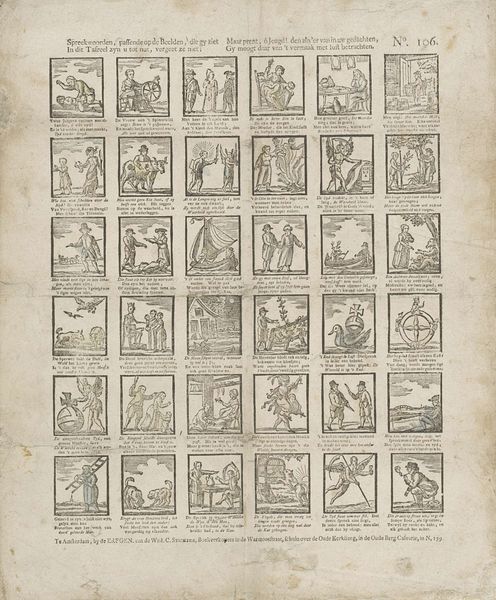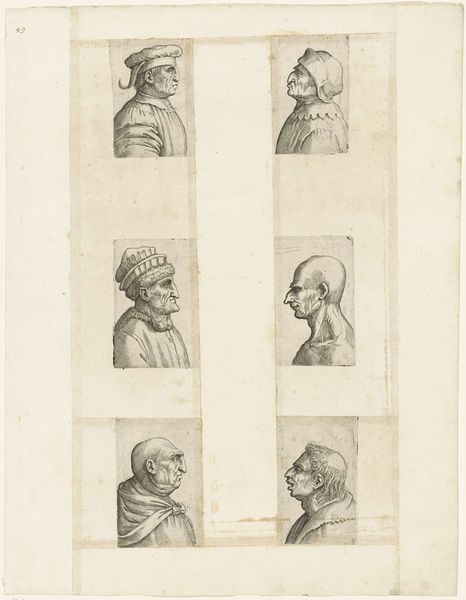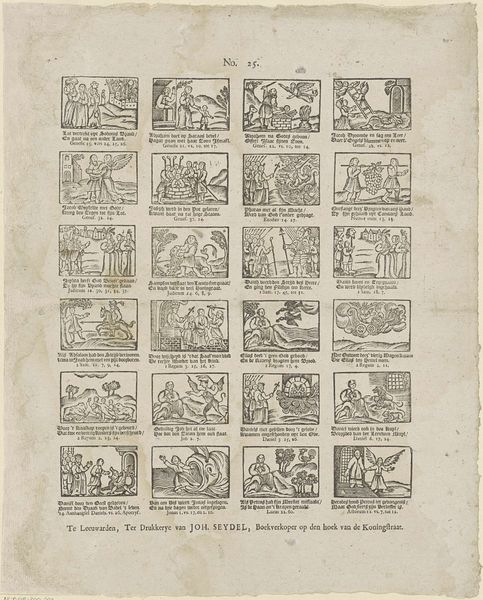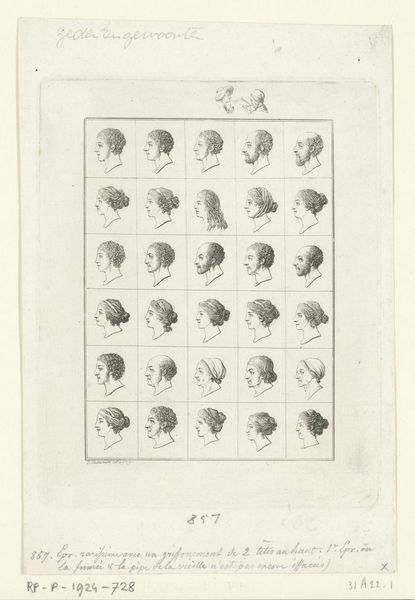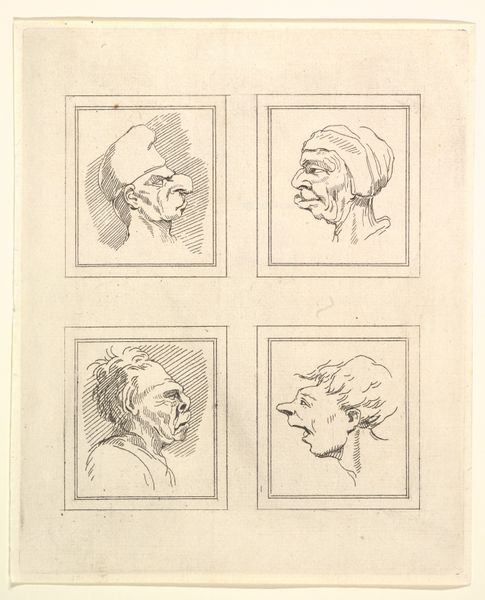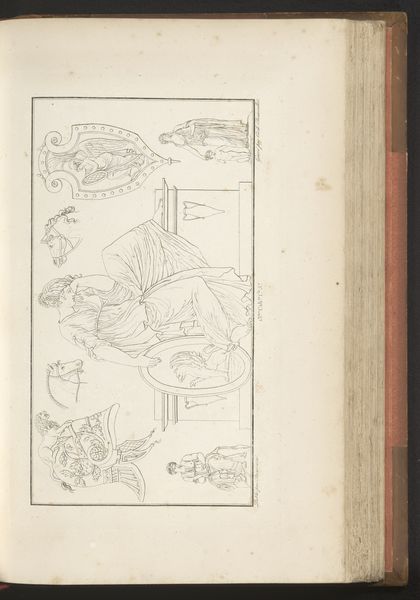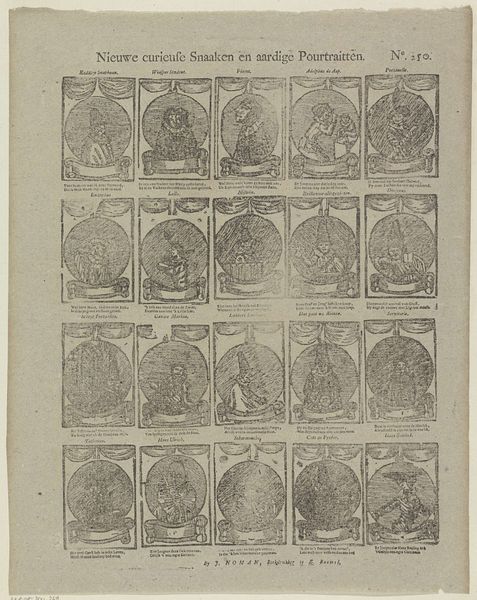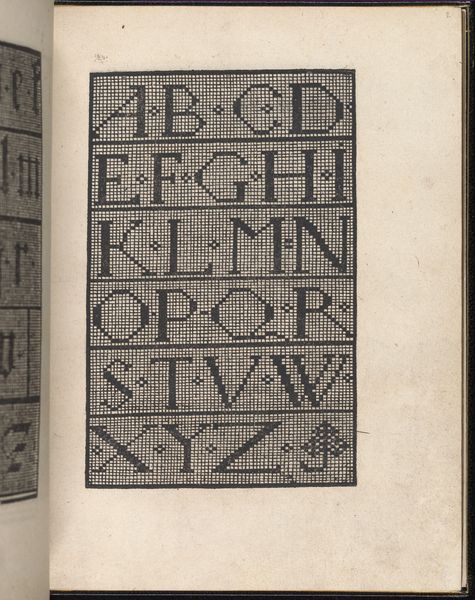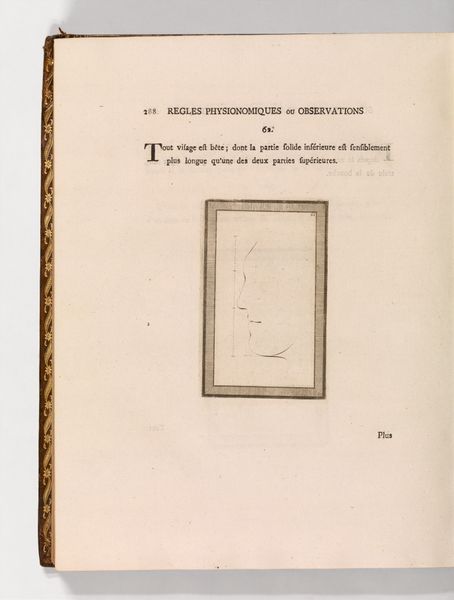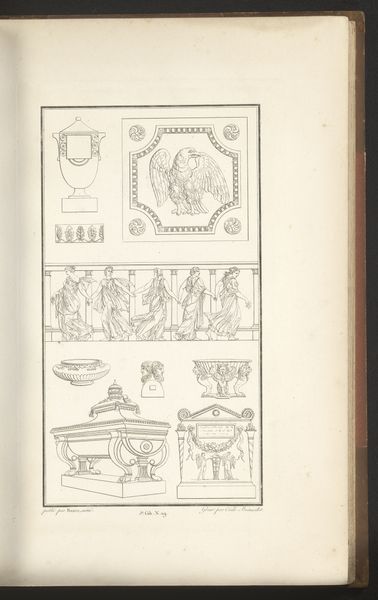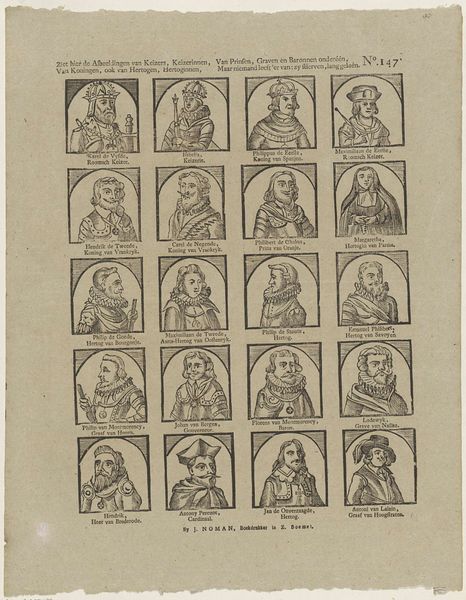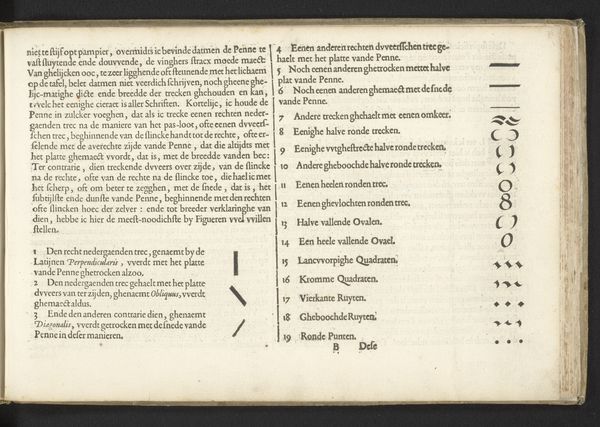
Illustration and Text from Dürers Vier Bucher von Menslicher Proportion, Nuremberg, 1528 1528
drawing, print
portrait
drawing
figuration
11_renaissance
northern-renaissance
Copyright: Public Domain
This illustration and text comes from Albrecht Dürer's "Four Books on Human Proportion," published in Nuremberg in 1528. Here, Dürer presents a systematic approach to depicting the human face, dividing it into precise, measured sections. We see the head in profile, encased within a grid, each line and section carefully labeled. It echoes the ancient Greek canon of proportions, which sought to codify beauty through mathematical ratios. The grid, a symbol of rational order, overlays the organic form of the face. Yet, this attempt to quantify beauty also reveals the impossibility of fully capturing human variability. This tension between the ideal and the real has been a recurring theme in art across millennia. Think of ancient Egyptian art with its rigid profiles and the Renaissance obsession with perspective. The human face, a mirror of the soul, continues to defy perfect capture, always retaining an element of mystery.
Comments
No comments
Be the first to comment and join the conversation on the ultimate creative platform.

